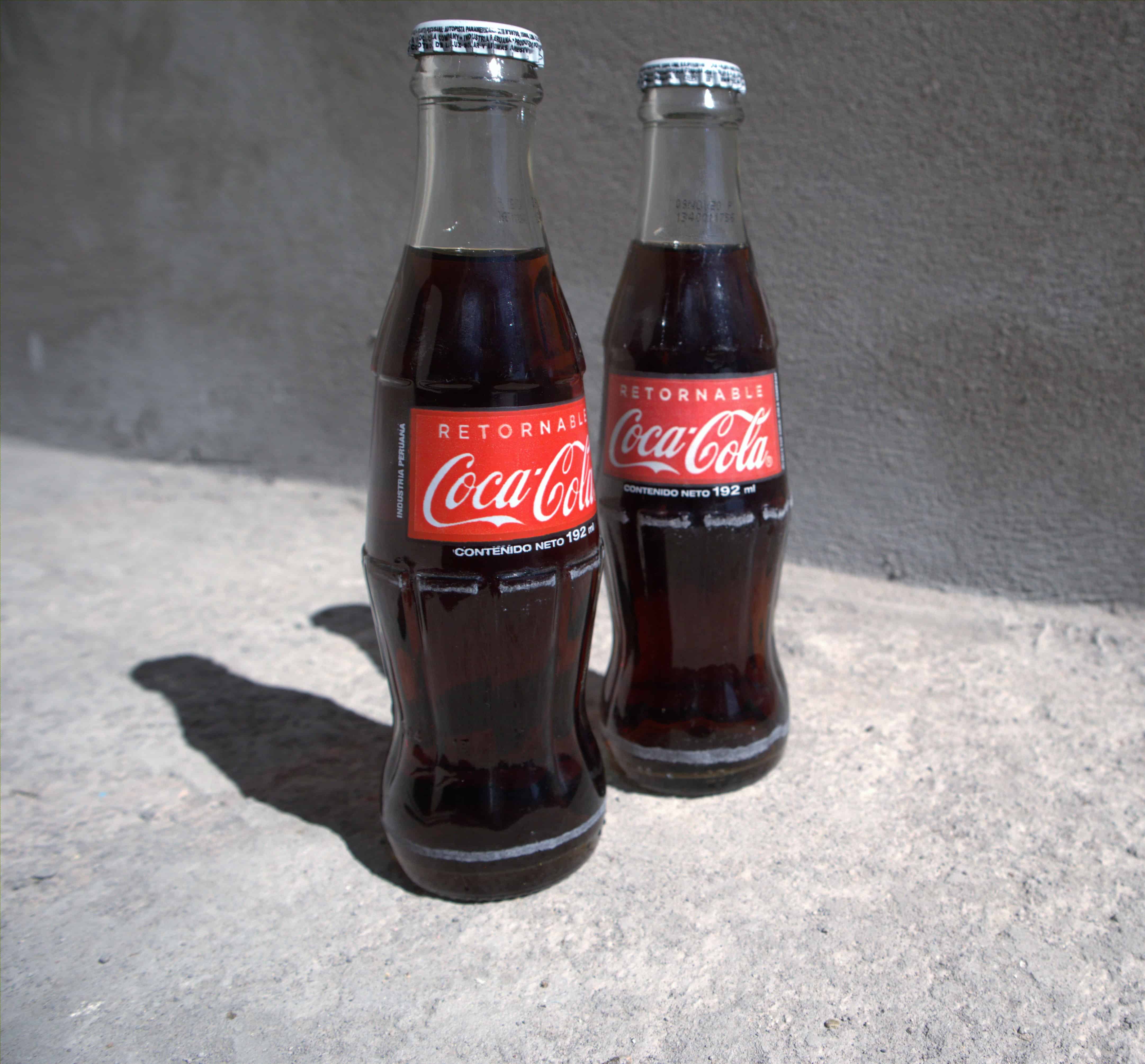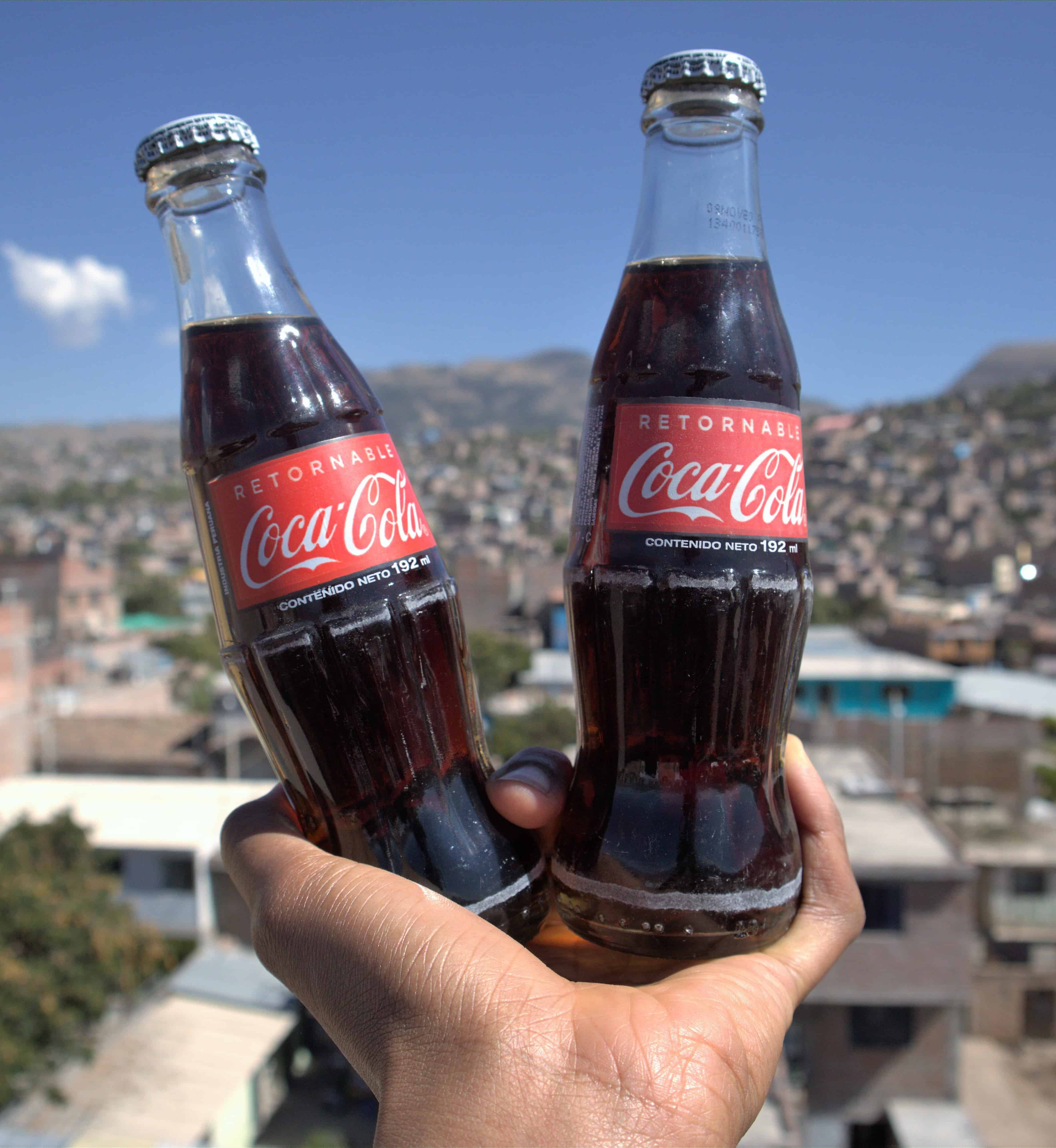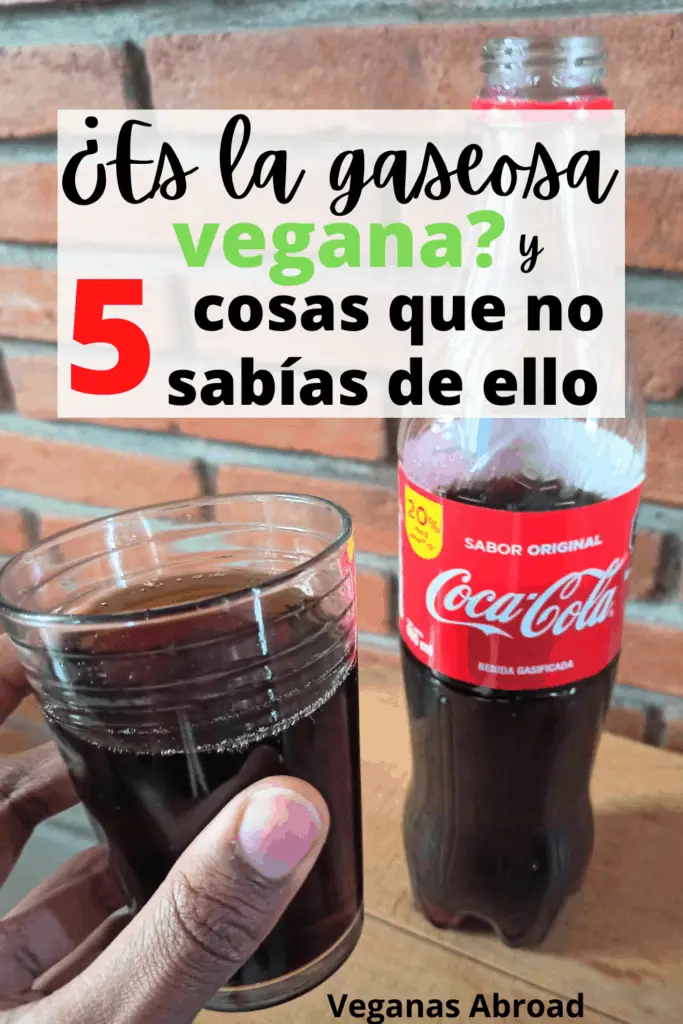
You may be surprised at the idea that a drink like Coca-Cola could might contain an animal product. But yes, it is a valid question. It's not as common as it used to be, but sometimes soda companies use animal products to make their sweet bubbly drinks.
As the world's largest beverage company, Coca-Colahas made sure that almost everyone can enjoy its products. That's why it's sold in over 200 countries!
But those who have decided to lead a vegan lifestyle may ask whether they can still drink it or not.
Yes, Coca-Cola is vegan, it does not contain milk, eggs or any animal products. It contains simple ingredients like flavoring agents and the caramel coloring that we also consume in some breads, cakes and sauces..
The Frequently Asked Questions page on their official website answers:
Yes, all of our soft drinks are considered vegan. If you are not sure if a drink is vegan-friendly, refer to the ingredients list next to the Nutrition Facts label on our bottles and cans.
Coca-Cola Nutrition Facts Label:
Coca-Cola
Coca-Cola websites in some Latin American countries such as Paraguay, Peru, Argentina, Chile do not yet mention the word vegan. However, the ingredients of Original Flavor Coca-Cola,as far as I have researched, hardly vary from country to country.
So I looked at the Original Coca-Cola nutrition labels in several different countries. For example, in the UK, Chile, Brazil and Spain the ingredients are the same. The only thing that varies sometimes by a few grams, is their amount of sugar, and what they use to sweeten.
As there are often different ingredients in different countries, the source of the sweetener may vary. That is why in Europe uses sugar for sweetening and the United States uses corn syrup.
Coca-Cola's website for Mexico, the largest consumer of Coca-Cola in the world, does mention vegans specifically; and they explain that most of their drinks are suitable for vegetarians and vegans.
But then it says that vegans and vegetarians should know that in some of their drinks, in order to stabilize the beta-carotene color, contain fish gelatin..
So, Original Coke passes the test for vegans! You can enjoy it pretty much wherever you are. However, be careful with soft drinks or other beverages that have beta-carotene colors, the pigment responsible for the yellow, orange, and red colors. ya que esto aplica a otros refrescos y bebidas también.
What is fish gelatin?
Fish gelatin is a semi-solid, translucent product obtained from the hydrolysis of collagen that comes from the skin, scales, fins or tail of fish, it is made to reuse the waste from the fishing industry.
This scientific paper has helped me a lot to understand how they use the waste after fish processing. I'll share my findings with you.
The fishing industry generates large amounts of waste such as heads, skin, bones, scales, fins, and fillet cuts. This waste can represent up to 60-70%. In other words, only 30-40% is used for food.
So, in an effort to reduce pollution to the environment by dumping the wastes into the ocean, or using it in other products of low commercial value, such as animal feed; studies have been conducted to evaluate how some of these by-products can be reused.
And finally they have developed several ways to use these remains in many products that we know. One of these is gelatin.
It's relative to your circumstances but gelatin and collagen from fish may be a risk for people who already have an allergy to fish.
But allergic or not, we always want to read the labels to make sure we are not ingesting things we do not want to.
So, Coke doesn't contain fish gelatin or anything else that vegans want to avoid. And since 2017 they don't do animal testing, so now they are a cruelty-free companyBut are there any possible health benefits of drinking Coke?
¿Does Coca-Cola have any nutritional value??

Coca-Cola was originally sold in pharmacies and contained cocaine, which at the time was considered legal medicine.
John Pemberton, su inventor, lo promocionó como una fórmula que podía curar la fatiga, dolores de cabeza y como un jarabe que ayudaba con la digestión.
Bueno, los tiempos han cambiado y la Coca-Cola no es igual que en los años 1800´s pero, ¿nos aporta algo nutricional?
Coca-Cola responds that their soft drinks contain between 85% and 99% water, which means they can help quench thirst and count towards your recommended daily fluid intake.
Dicen que, “los refrescos azucarados pueden contribuir a satisfacer las necesidades de líquido que tiene el cuerpo todos los días”.
Sure, there are many liquids that can temporarily quench your thirst, or at least give you that sensation. Some liquors also contain a high water content. However, having a high water content does not make something safe and healthy.
Drinks such as soda with added sugars have absolutely no nutritional value - they just add too much sugar and empty calories to our diet. They have no minerals, vitamins, or fiber.
Water is the only essential and vital liquid for our body and does more than just quench thirst. The benefits are many. But to say name a few; water is essential for the maintenance of our body ensuring that our cells and organs continue to function properly.
But if you decide to consume it regularly, besides knowing that it has no nutritional value, here are 5 more things you need to know about soda: 5 Things You Need to Know About Soft Drinks:
1. Soda is Bad for Your Teeth
The only cause of tooth decay is sugar. Soda is a huge source of liquid sugar. The combination of acids and sugars in soft drinks make your teeth more vulnerable to decay.
El Sugar feeds the bacteria already in your mouth. This combination forms acid and encourages the breakdown of your teeth.
Whether you drink a diet soda or sugar-free, it contains acids such as phosphoric and citric acid that attack the enamel, making your teeth weaker and more sensitive.
Tip- Use a metal straw to minimize the contact of the sugar with your teeth or rinse your mouth with water after drinking to dilute the acid and sugar so that they do not stay on your teeth.
2. Drinking soda increases the desire for other sweetened foods
When we drink artificial sweeteners, especially in liquid form, we are fooling are brain.
According to Studies there is a disconnect between the amount of sweetness that we taste and the amount of glucose [blood sugar] actually reaching the brain. When we drink this empty liquid artificial sugar, the brain feels cheated and "believes you have to eat more and more sweetness to get the calories that it was expecting.
So the artificial sugars trick your metabolism into thinking that the sugar is on its way, but when it doesn't come, it increases the desire to eat more sweets so that this sugar arrives that it is waiting for. Before we know it, we have eaten the whole box of cookies.
3. Soda Increases Your Risk of Diabetes
While sugar is only part of the equation, consuming large amounts of it can increase your risk of diabetes..
Eating a lot of fructose has an impact on the liver,including promoting fatty liver, inflammation and localized insulin resistance, which can directly increase your risk of diabetes.
Drinking just one sugar-sweetened drink a day can increase your risk by 13%
4. Drinking sugary drinks drastically increases the accumulation of fat around the stomach
Fructose is associated with increased fat around your abdomen and organs. If you drink added sugar in the form of soda or soft drinks you overload your liver with fructose and after converting the fructose it can into energy (glucose) it is forced to convert the excess into fat.
This process increases the fat in your belly and liver and can cause insulin resistance..
5. Sugary soft drinks can be addictive
We've all had that friend who can't seem to live without their favorite soda. It's because it brings them so much pleasure, and our brain is programmed to seek out those things that bring us this feeling of pleasure by releasing dopamine into our brain's "reward center".
Eating sugar can stimulate our brain to release dopamine and signal us to keep looking for that feeling of pleasure. This leads us to consume more and more. This feeling of pleasure to our brain can make us want to keep drinking or eating even when we are full.
To Drink or Not to Drink?
In the end, all things considered, Coca-Cola is one of the most popular drinks in the world with a high quality and unique taste, and is suitable for vegans. But as we have seen no soda or soft drink will bring you any nutritional value.
So while it can't hurt to have a soda once in a while, if you're enjoying the health benefits of a vegan diet, why not make sure your drinks come from natural sources as well and treat the soda as an occasional treat??
In my case, on the rare occasion that someone offers me soda, I find the carbonation very strong and feel the sugar in my mouth directly. It's interesting how your palate and desire to consume certain things changes. The interesting thing about being vegan is seeing how your palate and tastes mature, that is if you are willing to make changes and try new things.
The WHO tells us: Lower consumption of sugary drinks means a reduction in the intake of "free sugars" and total caloric intake, better nutrition and a decrease in the number of people who are overweight, obese, diabetic and have dental cavities.
So the experts recommend that you take soda out of your diet completely to have the benefits it will bring to your weight and health.
¡Síguenos en Pinterest y Instagram!

